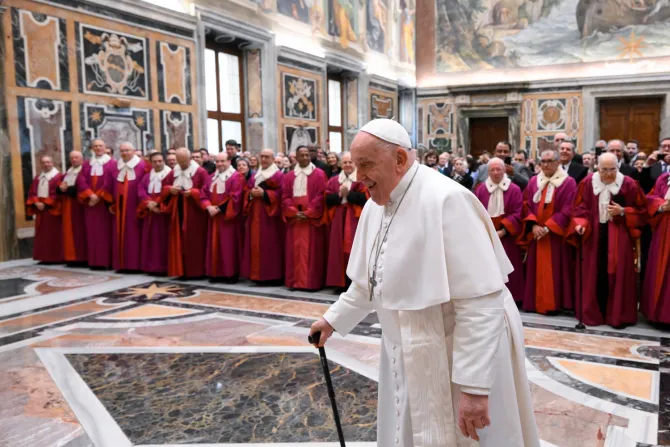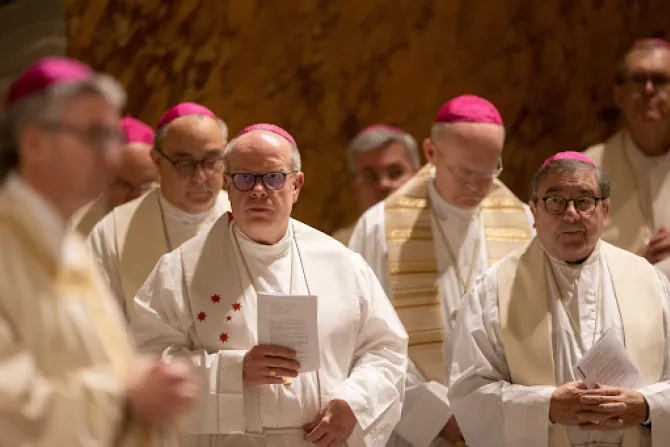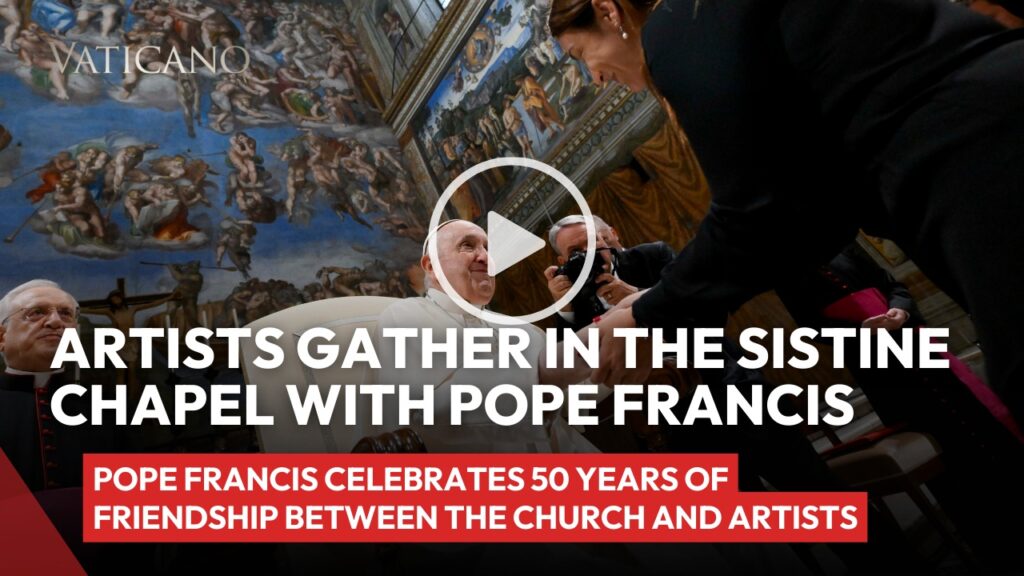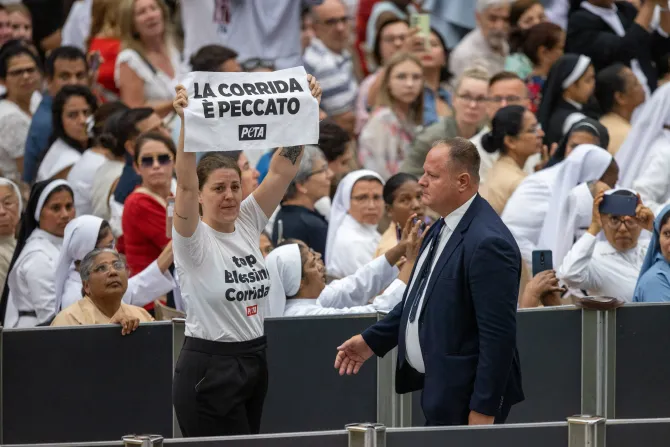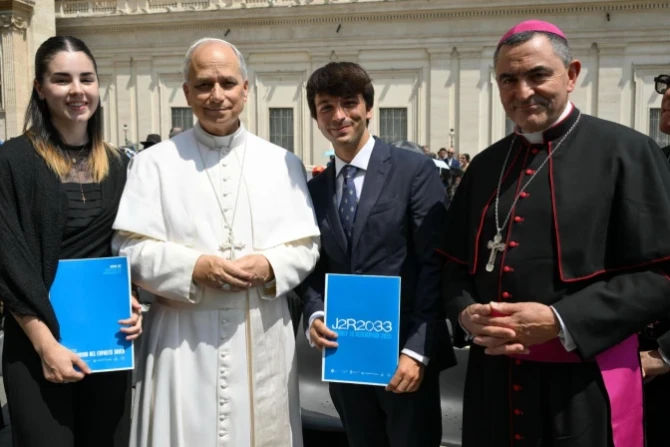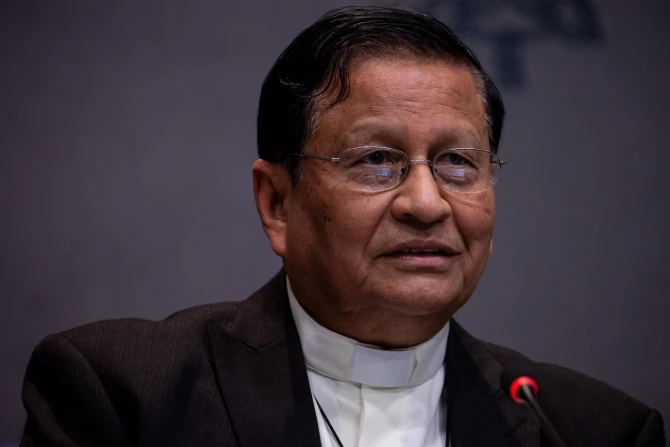During the inauguration of the Vatican’s Judicial Year this Thursday, January 25, Pope Francis reminded the judges of the Apostolic Tribunal of the Roman Rota about the importance of prayer and invoking the Holy Spirit for good discernment, especially during marriage nullity processes.
In his address to the magistrates, the Holy Father reflected on discernment, a “key part of this service”, particularly necessary during marriage nullity processes.
He also recalled the latest reforms implemented in these processes through his motu proprio Mitis iudex Dominus Iesus, emphasizing that these changes “should not be misinterpreted, and the necessity of serving the faithful with a ministry that helps them understand the truth about their marriage should never be neglected”.
He clarified that with these modifications, he did not intend to favor the nullity of marriages, “but the speed of the processes”, and for this reason, he wished that marriage nullity cases be handled judicially, and not administratively, “because the need to protect the truth of the sacred bond in the highest degree demands it”.
“Without Prayer, You Cannot Be a Judge”
Pope Francis explained to the judges of the Roman Rota that this discernment is a great responsibility that the Church entrusts to them, “because it strongly influences the lives of individuals and families”. Therefore, he urged the magistrates to face this task “with courage and clarity”, highlighting that above all, “it is decisive to count on the light and strength of the Holy Spirit”, since “without prayer, you cannot be a judge”. “If someone does not pray, please resign, it is better that way,” the Holy Father asserted.
According to the Pontiff, “only in this way can decisions be made that go in the direction of the good of individuals and the entire ecclesial community”.
He also emphasized that “the objectivity of judicial discernment requires being free from any prejudice, whether in favor or against the declaration of nullity”.
Prudence and Justice
To achieve good discernment, Pope Francis advised them to live out two great virtues: “prudence and justice, which must be informed by charity”.
Pope Francis advocated for “just prudence” that does not refer to a “discretionary” decision, but to a “declarative act on the existence or non-existence of the good of marriage”. He also emphasized that “just discernment implies an act of pastoral charity, even when the sentence is negative”.
For Pope Francis, “ecclesiastical law must be made in light of the truth about indissoluble marriage, which the Church safeguards and disseminates in its preaching and mission”.
Finally, the Holy Father reminded that discernment about nullity “is supported and guaranteed by its synodal character”.
“When the tribunal is collegial, as is usually the case, or when there is only one judge but consults with those in authority, discernment is carried out in a climate of dialogue or discussion, in which frankness and mutual listening are fundamental, for a common search for truth”. Pope Francis insisted that in this service, “it is essential to invoke the Holy Spirit, as we strive to deploy all human means to ascertain the truth”.

